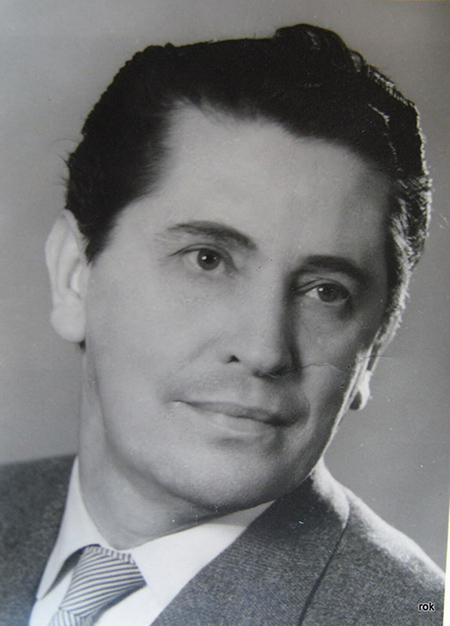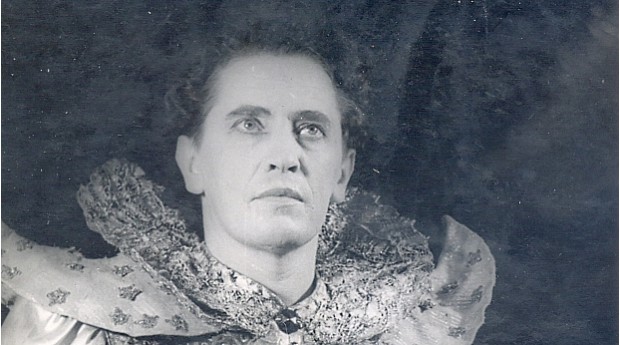Leopold Dermota was appearing on stage as Leo Cordes-Dermota (Kordež was his mother's maiden name).
He was a metal worker first (Kropa, the village where the Dermotas came from, traditionally produced hand-made nails),
then an engine fitter, then followed his elder brother Anton to Vienna, studied voice with the same
teacher, and became a tenor like Anton.
He spent his career in smaller houses in Austria (like in Innsbruck or at the Vienna Volksoper), Germany (Würzburg) and Switzerland.
His debut is usually given as "1942 at the Landestheater in Salzburg", and while it seems true that he came to Salzburg in 1942 (and
stayed there until 1950), that was not his debut as he already sang one evening at the Vienna Staatsoper in February 1939 (see below).
He also sang at the Salzburger Festspiele 1949 (concert) and 1951 (Arbace in Idomeneo and as a soloist
in Mozart's Great Mass in C minor).
While pursuing his career in leading parts in the provinces, Cordes-Dermota used to sing minor roles at the Wiener Staatsoper at the
same time:
Der fliegende Holländer (Steuermann, 15 February 1939); Un ballo in maschera (Servo, 16 times, 13 December
1946 to May 25, 1948); Boris Godunov (Missail,
twice, 26 July 1945 and 2 August 1945); Carmen (Remendado, 12 times, 21 November 1946 to 26 October 1947);
Madama Butterfly (Goro, 2 September 1946); Pagliacci (Beppo, 7 times, 6 December 1946 to 27 November 1947);
Salome (Dritter Jude, 17 May 1947); Švanda dudák (First Policeman, 16 times, 1 January 1947 to 21 May
1947); Die toten Augen (Hirt, 29 April 1950).
After his career, he returned to Kropa and became director of the local blacksmithing museum.
Picture source 1 (top), picture source 2 (bottom)

